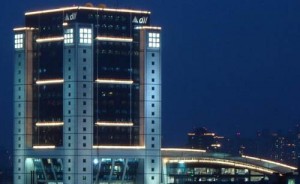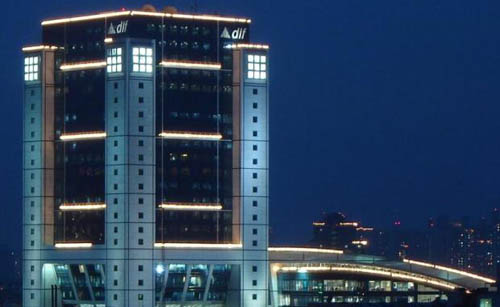 DLF, India’s biggest real estate developer, will develop its Rs.1000-crore Infopark project spread over 54 acres in Bhubaneswar in phases. In the first phase, the firm intends to develop one-tenth of the plot (5.4 acres) and has sought the building plan approval of the Bhubaneswar Development Authority (BDA) in this connection
DLF, India’s biggest real estate developer, will develop its Rs.1000-crore Infopark project spread over 54 acres in Bhubaneswar in phases. In the first phase, the firm intends to develop one-tenth of the plot (5.4 acres) and has sought the building plan approval of the Bhubaneswar Development Authority (BDA) in this connection
“DLF has submitted a revised building plan for the Infopark project. Initially, they intend to develop one-tenth of the plot area. The revised building plan of DLF is under scrutiny of BDA”, a BDA official told Track2Realty on.
Following the de-notification of the Special Economic Zone (SEZ), DLF had sought to develop the Infopark project under the STPI (Software Technology Parks of India) scheme. DLF had sought some changes in its Infopark project to be built over 54 acres in the Infocity region of the city.
The real estate major was keen on setting aside a greater area for non-processing facilities like shopping malls and multiplexes.
It may be noted that DLF’s Infopark project in Bhubaneswar was under a cloud of uncertainty after the real estate player had sought de-notification of its four IT SEZs (Special Economic Zones) in the country including the one in the city.
It had gone slow on construction work due to the slackening demand for IT projects in the country in the backdrop of the economic downturn.
The DLF Infopark project which was to come up in three phases, comprises an IT block, a luxury hotel, a retail chain, service apartments and recreational facilities with a total built-up space of about 5.5 million sq ft.
For setting up the luxury hotel, DLF had tied up with Hilton, an international hotel chain.
In the first phase, DLF had committed an investment of Rs.300 crore for developing an IT workspace of international standards with a built-up area of 5.7 lakh sq ft.
The first phase was scheduled to be operational within eighteen months to two years after commencement of construction work.
The Infopark project was to generate direct and indirect employment opportunities for over 40,000 people in sectors like IT and ITes (IT enabled services), retail and hospitality.





